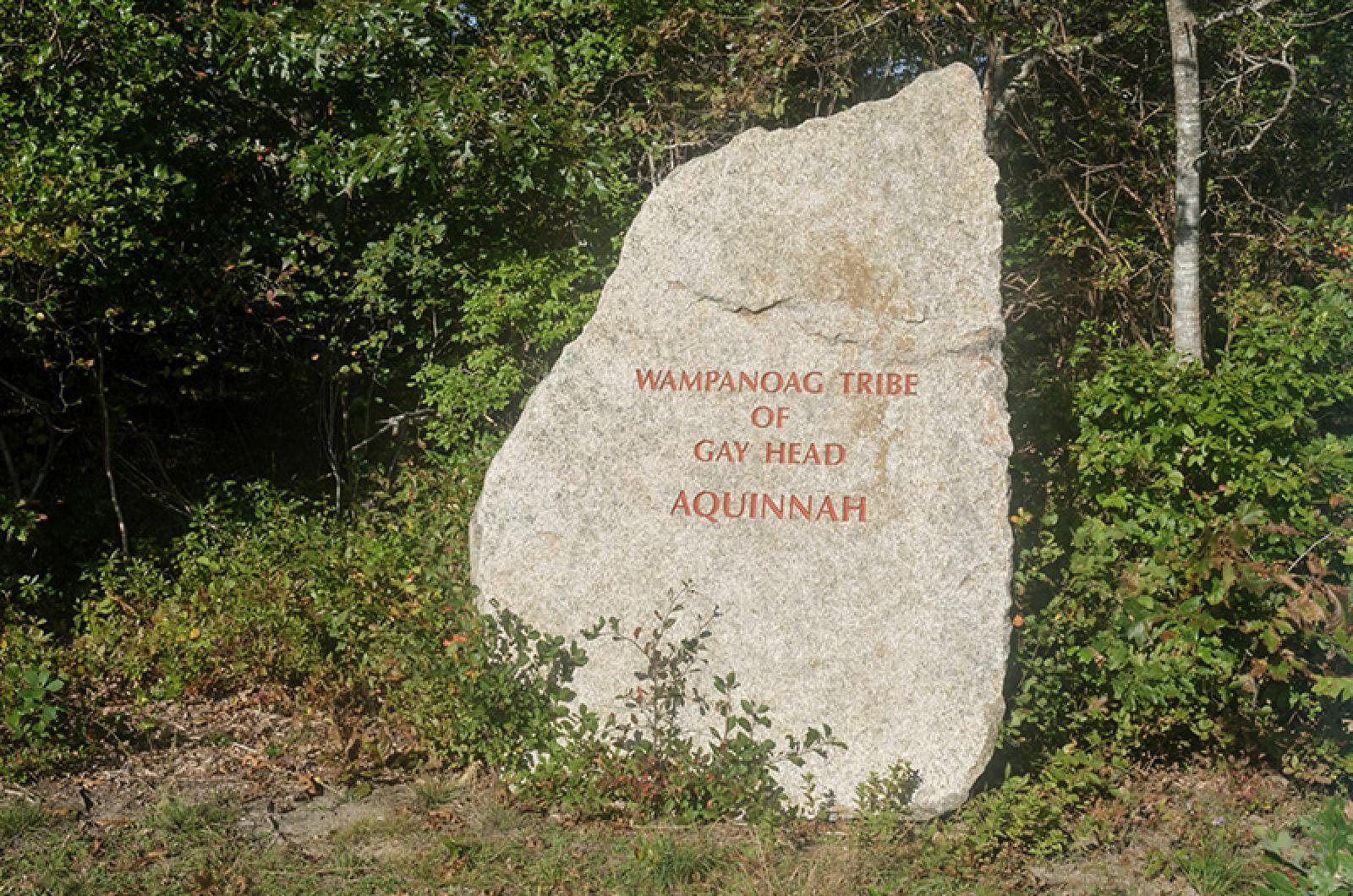A move by a Delaware bank to foreclose on a small property in Aquinnah has opened up a new front in the Wampanoag tribe’s continuing efforts to assert its rights as a sovereign nation.
The battle is playing out in Massachusetts Land Court in a case that began when the bank, Wilmington Savings Fund Society, sought to enforce an easement that had been granted to the previous owner of the land.
The only access to the property on Old South Road is through land held in trust for the Wampanoag Tribe of Gay Head (Aquinnah) by the U.S. government. And the tribe claims it has sole authority to decide who can set foot on its land.
Until 2019, the property was owned by Matthew Vanderhoop, who as a tribal member was allowed to cross tribal land without a formal easement, according to the tribe’s longstanding tradition. However, in order to get a construction loan to build a house on the property, Mr. Vanderhoop needed a formal easement. In May 2003 an easement agreement between him and the tribe was recorded with the Dukes County Registry of Deeds, and he built his driveway across tribal land.
That might have been the end of the story, but in 2008 Mr. Vanderhoop, having paid off the $595,000 construction loan with a permanent $850,000 loan, defaulted on his mortgage, court documents show. When Wilmington Savings finally moved to foreclose on the property in 2019 — more than a decade later — auctioneers who went to the site had their access blocked by Mr. Vanderhoop, other tribal members and local police. Mr. Vanderhoop’s car had a sign on its windshield reading, “Indian Land. You are NOT Welcome,” according to the bank’s version of events included in a joint description of the case.
The immediate showdown ended, and the tribe subsequently agreed to allow the bank access for the limited purpose of foreclosing the property.
“The tribe, however, now continues to assert that the easement agreement is invalid; and after the foreclosure sale of the property and eviction of Vanderhoop, the tribe blocked Wilmington Savings’ entry on to the tribe’s Land (and hence its access to the property) with ‘no trespassing’ signs, a sawhorse, a heavy chain strung between two trees, and ultimately a locked gate,” according to the bank’s version of the case.
The dispute has taken on larger significance, with an attorney for the tribe declaring in a motion to dismiss: “This case is about the right of a federally recognized Indian tribe to be free of unconsented interference over its homelands.” The land court has set a hearing for next Tuesday to consider the motion.
The tribe is represented by Lael Echo-Hawk, a Washington, D.C.-based attorney and one of the lawyers representing the tribe in its protracted legal bid to build a bingo hall in Aquinnah.
As in that case, one of the primary points of contention is whether the tribe waived aspects of its sovereignty in 1983 when it signed an agreement to settle a land claims dispute with the town of Aquinnah.







Comments (2)
Comments
Comment policy »